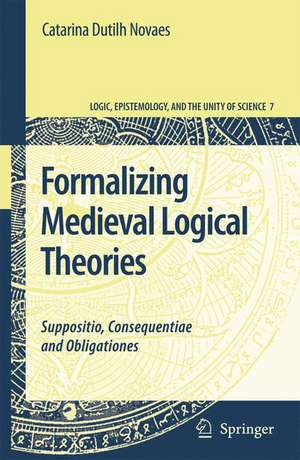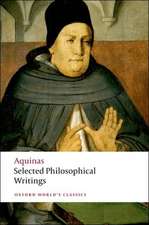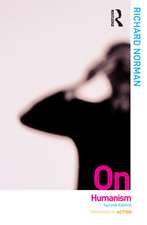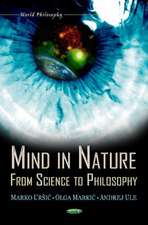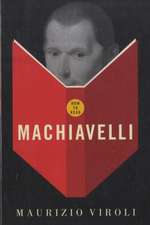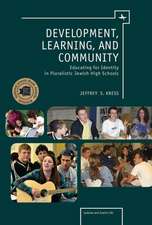Formalizing Medieval Logical Theories: Suppositio, Consequentiae and Obligationes: Logic, Epistemology, and the Unity of Science, cartea 7
Autor Catarina Dutilh Novaesen Limba Engleză Hardback – 19 apr 2007
| Toate formatele și edițiile | Preț | Express |
|---|---|---|
| Paperback (1) | 945.92 lei 6-8 săpt. | |
| SPRINGER NETHERLANDS – 30 noi 2010 | 945.92 lei 6-8 săpt. | |
| Hardback (1) | 952.09 lei 6-8 săpt. | |
| SPRINGER NETHERLANDS – 19 apr 2007 | 952.09 lei 6-8 săpt. |
Din seria Logic, Epistemology, and the Unity of Science
- 18%
 Preț: 1233.06 lei
Preț: 1233.06 lei - 18%
 Preț: 1001.32 lei
Preț: 1001.32 lei - 18%
 Preț: 1663.80 lei
Preț: 1663.80 lei - 18%
 Preț: 945.62 lei
Preț: 945.62 lei - 18%
 Preț: 1235.25 lei
Preț: 1235.25 lei - 18%
 Preț: 1224.06 lei
Preț: 1224.06 lei - 18%
 Preț: 955.70 lei
Preț: 955.70 lei - 15%
 Preț: 644.95 lei
Preț: 644.95 lei - 24%
 Preț: 1058.21 lei
Preț: 1058.21 lei - 20%
 Preț: 558.62 lei
Preț: 558.62 lei - 24%
 Preț: 878.91 lei
Preț: 878.91 lei - 18%
 Preț: 1236.99 lei
Preț: 1236.99 lei - 24%
 Preț: 896.28 lei
Preț: 896.28 lei - 24%
 Preț: 791.24 lei
Preț: 791.24 lei - 24%
 Preț: 727.48 lei
Preț: 727.48 lei - 24%
 Preț: 789.89 lei
Preț: 789.89 lei - 20%
 Preț: 561.67 lei
Preț: 561.67 lei - 20%
 Preț: 560.30 lei
Preț: 560.30 lei - 20%
 Preț: 568.73 lei
Preț: 568.73 lei - 24%
 Preț: 1046.20 lei
Preț: 1046.20 lei - 24%
 Preț: 698.16 lei
Preț: 698.16 lei - 20%
 Preț: 549.89 lei
Preț: 549.89 lei - 18%
 Preț: 958.73 lei
Preț: 958.73 lei - 20%
 Preț: 580.52 lei
Preț: 580.52 lei - 20%
 Preț: 550.76 lei
Preț: 550.76 lei
Preț: 952.09 lei
Preț vechi: 1161.08 lei
-18% Nou
Puncte Express: 1428
Preț estimativ în valută:
182.22€ • 189.50$ • 152.48£
182.22€ • 189.50$ • 152.48£
Carte tipărită la comandă
Livrare economică 15-29 martie
Preluare comenzi: 021 569.72.76
Specificații
ISBN-13: 9781402058523
ISBN-10: 1402058527
Pagini: 328
Ilustrații: XII, 316 p.
Dimensiuni: 155 x 235 x 19 mm
Greutate: 0.64 kg
Ediția:2007
Editura: SPRINGER NETHERLANDS
Colecția Springer
Seria Logic, Epistemology, and the Unity of Science
Locul publicării:Dordrecht, Netherlands
ISBN-10: 1402058527
Pagini: 328
Ilustrații: XII, 316 p.
Dimensiuni: 155 x 235 x 19 mm
Greutate: 0.64 kg
Ediția:2007
Editura: SPRINGER NETHERLANDS
Colecția Springer
Seria Logic, Epistemology, and the Unity of Science
Locul publicării:Dordrecht, Netherlands
Public țintă
ResearchCuprins
Supposition Theory: Algorithmic Hermeneutics.- Buridan's Notion of Consequentia.- Obligationes as Logical Games.- The Philosophy of Formalization.
Textul de pe ultima copertă
This book presents novel formalizations of three of the most important medieval logical theories: supposition, consequence and obligations. In an additional fourth part, an in-depth analysis of the concept of formalization is presented – a crucial concept in the current logical panorama, which as such receives surprisingly little attention.
Although formalizations of medieval logical theories have been proposed earlier in the literature, the formalizations presented here are all based on innovative vantage points: supposition theories as algorithmic hermeneutics, theories of consequence analyzed with tools borrowed from model-theory and two-dimensional semantics, and obligations as logical games. For this reason, this is perhaps the first time that these medieval logical theories are made fully accessible to the modern philosopher and logician who wishes to obtain a better grasp of them, but who has always been held back by the lack of appropriate ‘translations’ into modern terms.
Moreover, the book offers a reflection on the very nature of logic, a reflection that is prompted by the comparisons between medieval and modern logic, their similarities and dissimilarities. It is thus a contribution not only to the history of logic, but also to the philosophy of logic, the philosophy of language and semantics.
The analysis of medieval logic is also relevant for the modern philosopher and logician in that, being the unifying methodology used across all disciplines at that time, logic really provided unity to science. It thus presents a unified model of scientific investigation, where logic plays the aggregating role.
Although formalizations of medieval logical theories have been proposed earlier in the literature, the formalizations presented here are all based on innovative vantage points: supposition theories as algorithmic hermeneutics, theories of consequence analyzed with tools borrowed from model-theory and two-dimensional semantics, and obligations as logical games. For this reason, this is perhaps the first time that these medieval logical theories are made fully accessible to the modern philosopher and logician who wishes to obtain a better grasp of them, but who has always been held back by the lack of appropriate ‘translations’ into modern terms.
Moreover, the book offers a reflection on the very nature of logic, a reflection that is prompted by the comparisons between medieval and modern logic, their similarities and dissimilarities. It is thus a contribution not only to the history of logic, but also to the philosophy of logic, the philosophy of language and semantics.
The analysis of medieval logic is also relevant for the modern philosopher and logician in that, being the unifying methodology used across all disciplines at that time, logic really provided unity to science. It thus presents a unified model of scientific investigation, where logic plays the aggregating role.
Caracteristici
Makes medieval logic understandable to the modern logician/philosopher Sheds a new light on medieval logical theories by means of newly designed formalizations Is a diachronic analysis of what constitutes the essence of logic, in particular through the concept of the formal Combines in-depth historical analysis with a systematic/logical approach to medieval logic
